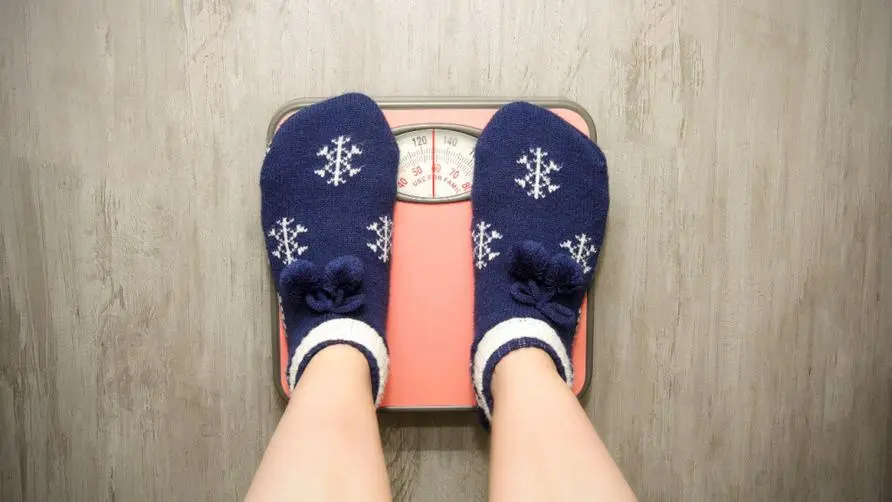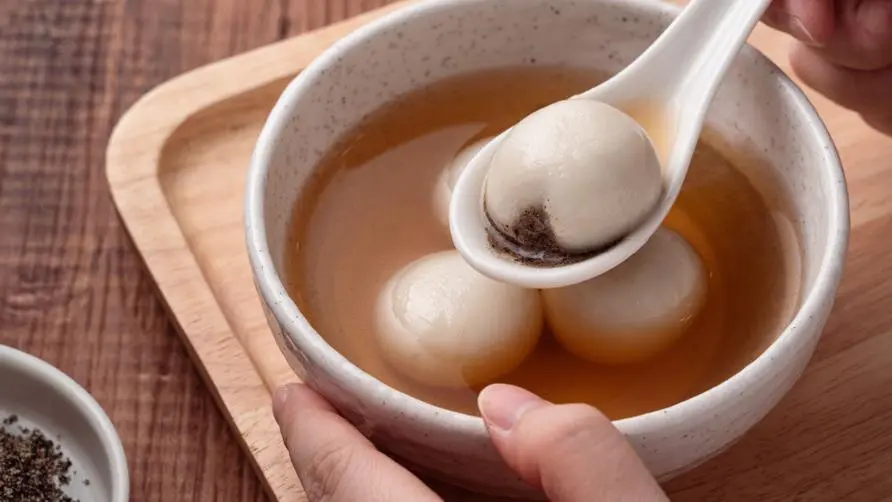Eating a lot of fish and meat during the holidays can lead to obesity and poor control of chronic diseases! 4 "Diet Keys" to Prevent Calorie Excess

It is easy to overindulge in food and fish during the holidays. Overeating can easily lead to weight gain and poor control of chronic diseases. How to enjoy delicious food during the holidays while avoiding the health burden caused by diet is a difficult challenge for many people. “Harvard Medical School Health Publishing” professional nutritionist Teresa Fung proposed a “New Year’s Diet” plan, suggesting that instead of overindulging in delicious food and then worrying about weight and health problems, people should develop four good eating habits from the new year. Helps maintain health and vitality in the coming year.
1. Portion control and mindful eating
Festival delicacies tend to be large in portions and in variety, making it easier for people to eat larger portions of food than usual during festivals. This is a good opportunity to practice “portion control”. For example, if there are three types of desserts on the table, you might as well take one from each. With small portions, you can enjoy delicious food without worrying about overdosing.
In addition, dining together and around the fire are also good opportunities to practice “mindful eating”. The meal time is lengthened, allowing more time to chew slowly and reduce the risk of overeating. Slow down your pace of life during the holidays so that your body and brain can better perceive the taste of food. It can also help your brain send correct hunger signals and reduce the risk of overeating.
2. Eat more plant-based diets
Regardless of Eastern and Western cultures, festive delicacies always include a lot of high-fat, high-calorie cooked meats. It is recommended that at the beginning of the new year, when preparing festive food, give priority to plant-based diets. For example, refer to the principles of the “Mediterranean Diet” and “MIND Diet” and add Healthy oils such as vegetables, fruits, whole grains, olive oil and fish oil not only provide adequate fiber intake, vitamins and minerals, but also help lower blood pressure and maintain a healthy weight.
On the other hand, during festivals, people have more time to cook at home. It is recommended to choose salad as the main meal for one meal a day, or only eat a plant-based diet once a week. The food types are limited to fruits, vegetables and whole grains, and increase the amount of phytochemicals and dietary supplements. The intake of fiber and antioxidant ingredients can help reduce the burden on the body from eating excessive amounts of meat and high-fat foods.
3. Take in appropriate amounts of natural spices
Natural spices contain many anti-inflammatory ingredients such as antioxidants and flavonoids, which can help regulate mood and inflammatory responses. Appropriate amounts of spices can also help regulate immunity and promote normal secretion of appetite. During the holidays, it is recommended to use natural spices instead of processed sauces. Try using spices in staple foods, meats, and side dishes. Including turmeric, garlic, chili, ginger, cinnamon, cloves, onions, nine-story pagoda, etc., it is not only more diverse in flavor but also healthier.
An analysis of the physical data of 500,000 Chinese adults showed that people who eat spicy food every day have a 14% lower risk of premature death than those who eat spicy food less than once a week. The research team believes that the positive effect of spicy food on reducing the risk of death is partly related to the “capsaicin” in spicy food. Capsaicin can improve metabolism, regulate blood lipids and inflammatory responses, and can also help with weight loss.
4. Control the amount of alcohol consumed during holidays
One survey found that adults consume an average of three alcoholic drinks per day during the holidays. However, recent studies have proven that consuming more than one drink per day increases the risk of cardiovascular disease. In addition, alcoholic beverages are usually high in calories, with an average serving containing 120-200 calories. Excessive intake of alcohol will increase the risk of obesity, fatty liver and cancer.
Drinking is unavoidable during the New Year and festivals, but those who are “not happy without alcohol” are reminded to limit their alcohol intake to 1-2 glasses a day, or switch to cocktails based on soda water and juice to reduce alcohol intake. Many people in Asian groups, including Taiwan, have a genetic mutation that causes acetaldehyde dehydrogenase (ALDH2) deficiency and cannot metabolize alcohol normally. They should avoid drinking on an empty stomach, ingesting it with high-fat foods, and slow down their drinking speed. In addition, metabolizing alcohol requires the consumption of vitamin B complex. Appropriate intake of natural foods rich in vitamin B complex, such as brown rice, dark vegetables, lean meat, fish, etc., can help alcohol metabolism and reduce the burden on the body.
Taiwanese people tend to overeat and gain weight during the holidays. The Taiwan Health Promotion Administration recommends that during the long holidays, it is recommended to adopt a balanced diet principle of “less fatty meat, less oily soup, less fried food, less sauce, and more fruits and vegetables” to enjoy delicious food. Yu should go out more and participate in walking, hiking, race walking and various sports. Sports can help regulate insulin secretion and body metabolism, and can also burn excess fat.
Excessive caloric intake is the main cause of obesity. The Taiwan Health Promotion Administration reminds Taiwanese people to master the principle of “total caloric control”. Eat more at one meal and reduce the amount of food at the next meal to reduce the health burden. In addition, go online to calculate your basal metabolic rate and total daily caloric expenditure (TDEE) to understand your caloric intake, which will help you maintain a healthy weight.
Source:
“Can you lose weight if you eat like this during the Chinese New Year?”
Does eating spicy foods have health benefits?
Jump-start a healthier New Year with four holiday eating tips
Extended reading:





